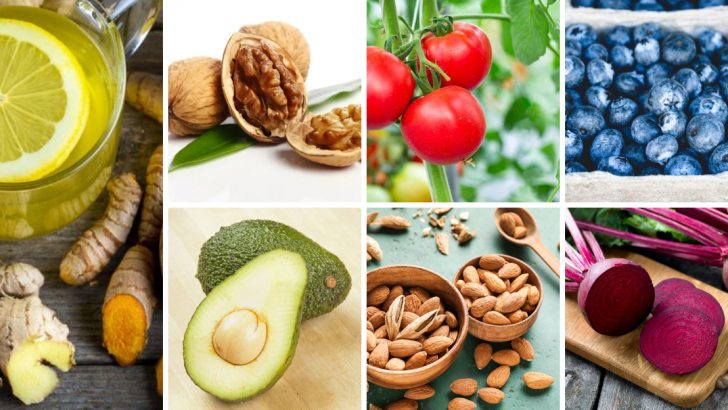Discover a collection of foods that naturally fight inflammation, helping you maintain a healthier and more balanced lifestyle. These anti-inflammatory foods are packed with essential nutrients and antioxidants, making them perfect additions to your daily meals. From vibrant fruits to hearty grains, each item offers unique benefits to support your well-being.
1. Turmeric
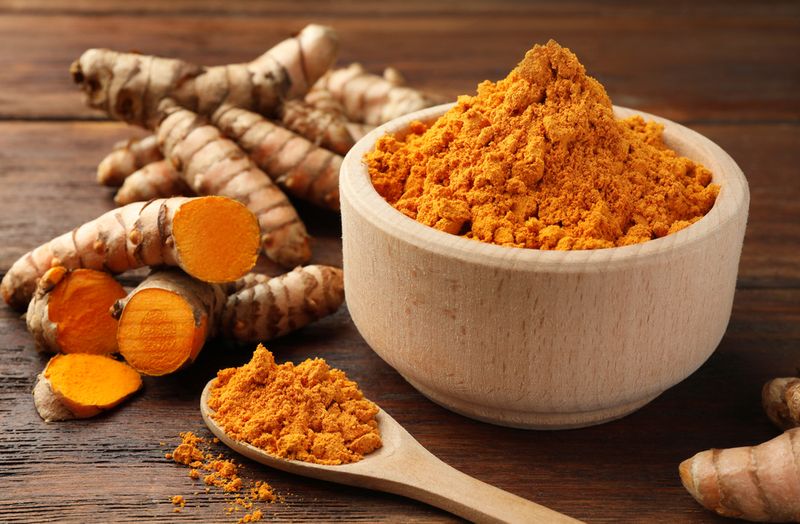
Turmeric, with its bright golden hue, is a spice that stands out for its anti-inflammatory properties. Curcumin, the active compound in turmeric, has been shown to reduce inflammation significantly.
Incorporating turmeric into your diet can be as simple as adding it to stews or smoothies. Besides its health benefits, it also adds a rich color and a warm, earthy flavor to dishes.
Did you know? Turmeric has been used in traditional Indian medicine for centuries, highlighting its long-standing reputation as a healing spice.
2. Blueberries

Blueberries, small yet mighty, are packed with antioxidants known as flavonoids. These compounds help combat inflammation and support overall health.
By adding blueberries to your breakfast or snacks, you’re not just enjoying a sweet treat but also boosting your body’s defense mechanism.
Fun fact: Blueberries are often referred to as a “superfood” due to their powerful health benefits. Their vibrant color and juicy texture make them a favorite among many for smoothies and desserts alike.
3. Salmon

4. Leafy Greens

Packed with vitamins, leafy greens like spinach and kale are powerful anti-inflammatory agents. Their high levels of antioxidants and polyphenols are vital in reducing inflammation.
Whether tossed in a salad or blended into a smoothie, these greens are versatile and delicious. They’re also a rich source of iron and calcium.
Interestingly, studies suggest regular consumption can lower the risk of heart disease. Adding a handful to your meals can be a simple step toward better health.
5. Walnuts
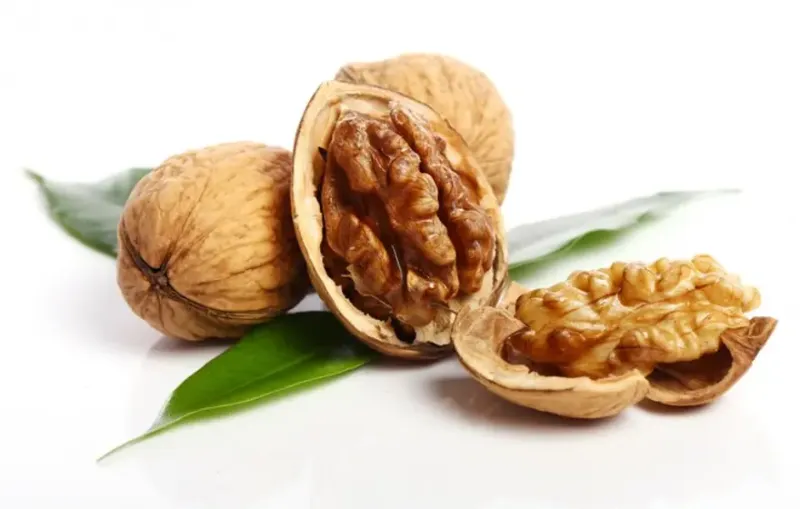
Walnuts are not just a tasty snack; they’re packed with omega-3 fatty acids that help reduce inflammation.
Their unique blend of nutrients, including fiber and protein, makes them a perfect addition to your diet. Enjoy them as a snack or add them to your morning oatmeal for a crunchy twist.
Did you know walnuts are often regarded as brain food? Their shape amusingly resembles the human brain, making them a fun and beneficial addition to your diet.
6. Ginger

Ginger has been used for centuries in traditional medicine for its anti-inflammatory properties. It’s a versatile spice that can be added to teas, soups, and curries.
Rich in gingerol, its active compound, ginger helps reduce inflammation and pain. Perfect for those chilly days, a cup of ginger tea can soothe both body and soul.
Its zesty flavor adds a kick to any dish, making it a culinary and health superstar.
7. Chia Seeds

Chia seeds may be tiny, but they’re mighty in fighting inflammation. Packed with omega-3 fatty acids, they are a fantastic plant-based alternative.
When soaked, chia seeds form a gel-like substance, perfect for puddings and smoothies. Their subtle taste allows them to blend seamlessly into various dishes.
A fun fact: the word “chia” means strength in Mayan. This superfood certainly lives up to its name, providing a nutritious punch.
8. Tomatoes

Bursting with lycopene, tomatoes are a delicious way to fight inflammation. This powerful antioxidant is more effective when tomatoes are cooked.
From sauces to salads, tomatoes add vibrant color and flavor to any meal. Their versatility makes them a staple in many cuisines.
Plus, tomatoes are believed to promote heart health. Whether raw or cooked, they’re a tasty addition to your anti-inflammatory arsenal.
9. Beetroot

With its rich color and earthy flavor, beetroot is a hidden gem in reducing inflammation. High in fiber and Vitamin C, it’s both nutritious and delicious.
Beetroot can be roasted, juiced, or added to salads. Its sweet, earthy taste pairs well with tangy cheeses and nuts.
Research suggests beetroot may improve athletic performance. It’s a vibrant addition that can enhance both taste and health.
10. Avocado

Avocados are creamy, delicious, and loaded with healthy fats that combat inflammation. Rich in monounsaturated fats and antioxidants, they support heart health and reduce inflammation.
Their versatility ranges from spreads to salads, providing a satisfying and nutritious addition to meals.
The high potassium content also supports blood pressure regulation. Whether mashed on toast or in guacamole, avocados are a tasty choice for health-conscious eaters.
11. Garlic

Garlic’s pungent aroma might be polarizing, but its benefits in reducing inflammation are undeniable. Allicin, its active compound, is known for both its flavor and health benefits.
Garlic can be added to numerous dishes, enhancing flavor while promoting well-being. From pastas to roasts, it’s a culinary staple.
A fun trivia: garlic was used by ancient civilizations for both food and medicine. Its historical and present-day use highlights its timeless appeal.
12. Almonds

Crunchy and satisfying, almonds are a fantastic source of healthy fats and vitamin E. They’re known to reduce inflammation and support overall health.
Enjoy them as a snack, or add them to your morning cereal for a nutritious boost. Almonds provide a delightful crunch to various dishes.
Their high antioxidant content makes them a powerful ally in fighting inflammation. Whether raw or roasted, almonds are a delicious way to enhance your diet.
13. Green Tea

Green tea is cherished for its subtle flavor and potent anti-inflammatory properties. Rich in catechins, it offers a calming and healthful experience.
Sip it warm or iced; green tea can fit any occasion. Its gentle taste pairs well with a touch of honey or lemon.
A fascinating fact: green tea has been consumed for centuries in China and Japan. It remains a timeless beverage that promotes well-being.
14. Bell Peppers
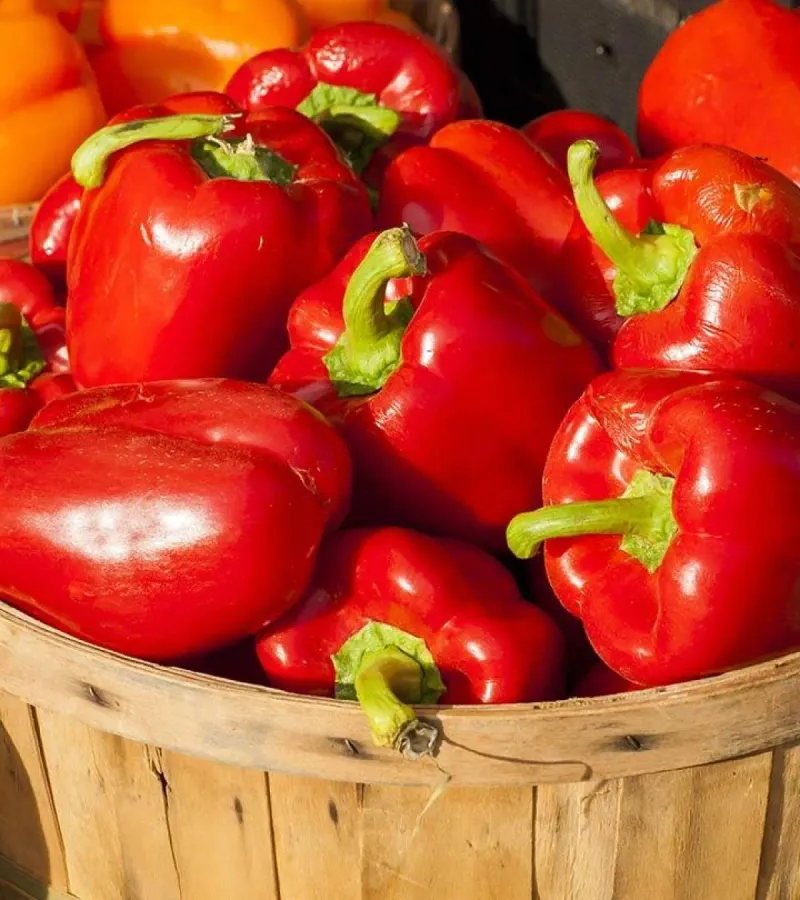
Bell peppers, with their vibrant colors, are not just visually appealing but also packed with antioxidants like vitamin C and quercetin.
Their crisp texture makes them perfect for salads, stir-fries, and snacking. Bell peppers add a sweet note to savory dishes.
Interestingly, red bell peppers are even richer in nutrients. Incorporating them into your diet adds both color and health benefits.
15. Sweet Potatoes
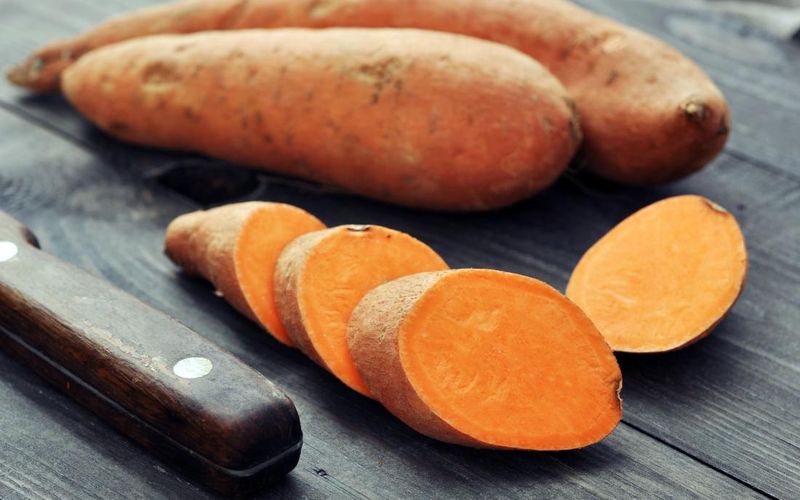
Sweet potatoes offer a delightful mix of sweetness and nutrition. High in beta-carotene, they provide powerful anti-inflammatory effects.
Their creamy texture makes them a favorite for baking, mashing, or roasting. Sweet potatoes are a versatile and nutritious addition to any meal.
A fun tidbit: sweet potatoes are not related to regular potatoes, despite the name. They offer a unique taste and a healthy boost to your diet.
16. Pineapple

Pineapple is not only a tropical delight but also a source of bromelain, an enzyme with anti-inflammatory properties.
Its juicy, sweet flavor makes pineapple a favorite in fruit salads and smoothies. It’s a delicious way to enhance both taste and health.
Pineapple’s enzyme content aids digestion, making it a perfect post-meal treat. Enjoy it fresh, grilled, or juiced for a tropical twist.
17. Flaxseeds

Flaxseeds, though small, pack a big punch in fighting inflammation. Rich in omega-3 fatty acids, they’re a valuable addition to any diet.
Sprinkle them on yogurt, oatmeal, or smoothies for added texture and nutrition. Their nutty flavor complements various dishes.
A fascinating fact: flaxseeds were cultivated as early as 3000 BC in Babylon. Their historical use underscores their enduring health benefits.
18. Carrots

Carrots, with their vibrant orange hue, are rich in beta-carotene, a powerful antioxidant that helps reduce inflammation.
Crunchy and sweet, they are perfect for snacking, salads, or roasted dishes. Carrots add a delightful sweetness to various recipes.
Interestingly, the beta-carotene in carrots converts to vitamin A, supporting eye health. Incorporating carrots into your meals is both tasty and beneficial.
19. Broccoli

Broccoli, a member of the cruciferous family, is renowned for its anti-inflammatory properties. Rich in sulforaphane, it aids in combating inflammation.
Its tender texture and mild flavor make it suitable for steaming, stir-frying, or raw in salads. Broccoli is a versatile and nutritious vegetable.
A quirky fact: broccoli was bred over 2,000 years ago in Italy. Its long history reflects its culinary and health benefits.
20. Oranges

Oranges are more than just a breakfast staple; they’re packed with vitamin C and flavonoids that help reduce inflammation.
Their juicy, refreshing taste makes them perfect for snacking, juicing, or adding to salads. Oranges offer a burst of flavor and health benefits.
Did you know? The orange peel contains even more antioxidants than the fruit itself. Utilizing the whole fruit can enhance your health journey.
21. Cucumbers

Cucumbers offer a cool, refreshing crunch and are known for their hydrating properties. With high water content and antioxidants, they help reduce inflammation.
Perfect for salads, sandwiches, or snacking, cucumbers bring a fresh taste to any dish. Their mild flavor complements various cuisines.
A fun fact: cucumbers belong to the same family as melons. Their watery goodness is a delightful addition to a healthy diet.
22. Grapes

Grapes, particularly red and purple varieties, are rich in resveratrol, an antioxidant that fights inflammation.
Their juicy sweetness makes them a favorite for snacking, desserts, and even savory dishes. Grapes add a burst of flavor to any meal.
Did you know? Grapes have been cultivated for over 8,000 years. Their long history and health benefits make them a timeless choice.
23. Olive Oil

Olive oil, particularly extra virgin, is celebrated for its anti-inflammatory properties. Rich in oleic acid, it supports heart health and reduces inflammation.
A staple in Mediterranean cuisine, olive oil adds depth and flavor to salads, pastas, and more. Its rich taste enhances various dishes.
A fun tidbit: olive oil has been a part of human diets for thousands of years. Its enduring appeal lies in both its flavor and health benefits.

